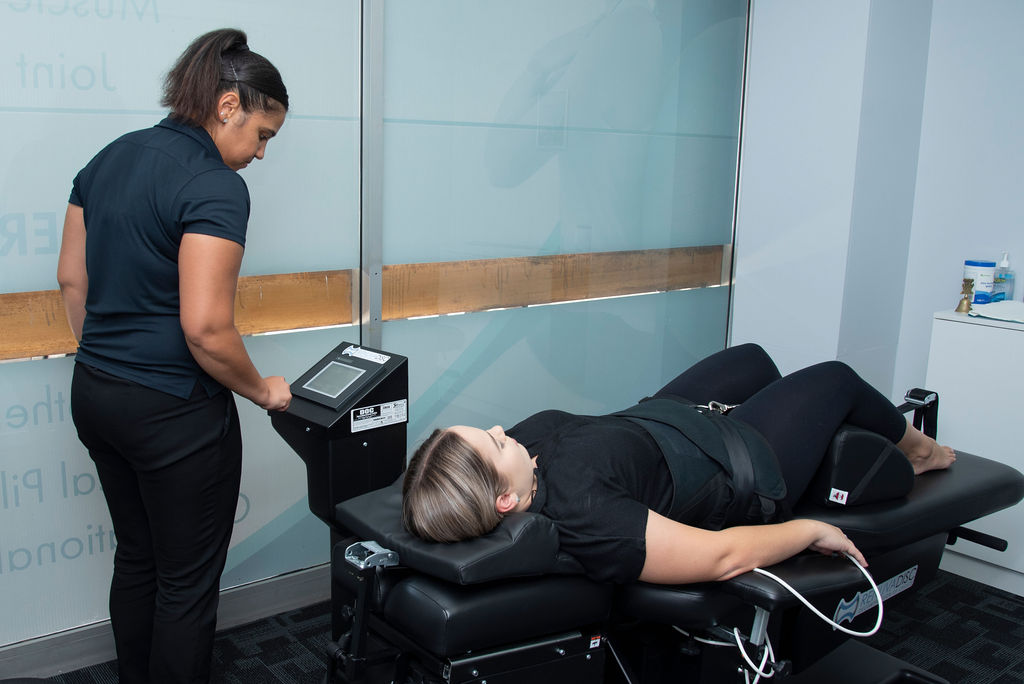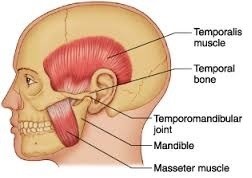

Understanding TMJ: What You Need to Know About Jaw Disorders
TMJ stands for temporomandibular joint, which is the joint that connects the lower jaw (mandible) to the temporal bone of the skull. The TMJ is a complex joint that is responsible for the movement of the jaw, including opening and closing the mouth, as well as moving the jaw from side to side.
Problems with the TMJ, also called temporomandibular disorder (TMD), can lead to pain, discomfort and difficulty when opening or closing the jaw, popping or clicking sounds when moving the jaw, or headaches and even neck and shoulder pain. There are many potential causes of TMD, such as injury, arthritis, or teeth grinding.
It’s worth noting that not all people with TMD will experience all of these symptoms, and the intensity of the symptoms can vary. It’s important to see a medical professional, such as a physiotherapist or dentist, for an accurate diagnosis and appropriate treatment for your TMD.
Common symptoms of TMJ
The symptoms of TMJ or TMD can vary depending on the underlying cause of the condition. However, some common symptoms include:
- Pain or tenderness in the jaw, face, neck or around the ears
- Limited range of motion of the jaw or difficulty opening or closing the mouth
- Clicking or popping sound when opening or closing the jaw
- Locking of the jaw or difficulty in moving the jaw
- Headaches or migraines
- Tinnitus (ringing in the ears)
- Dizziness
- Toothache
- Facial swelling
- Tenderness or discomfort when the TMJ area is touched
- Shoulder and neck pain
It’s important to see a medical professional, such as a physiotherapist or dentist, for an accurate diagnosis and appropriate treatment for your TMD, as different conditions have different causes and treatment plans.
Causes of TMJ
TMJ or TMD can have many different causes, some of the common ones include:
- Injury: Trauma to the jaw or face, such as a blow to the jaw or a car accident, can cause TMD.
- Arthritis: Osteoarthritis, rheumatoid arthritis, and other types of arthritis can affect the TMJ and cause pain and stiffness.
- Malocclusion or Bite issues: misalignment of the upper and lower teeth can put excessive stress on the TMJ, leading to pain and TMD.
- Teeth grinding or Bruxism: is a common cause of TMD, it occurs when a person grinds or clenches their teeth during sleep or when awake, can cause muscle fatigue, inflammation and damage to the TMJ.
- Stress: Stress can cause tension in the muscles of the jaw, leading to TMD symptoms.
- Genetics: Some people may be predisposed to TMD due to genetic factors.
- Other medical conditions: TMD can also be caused by other underlying medical conditions such as fibromyalgia, lupus, or multiple sclerosis.
It’s important to see a medical professional, such as a physiotherapist or dentist, for an accurate diagnosis and appropriate treatment for your TMD, as different conditions have different causes and treatment plans.
How is TMJ assessed by a Physiotherapist?
A physiotherapist will perform a thorough assessment to diagnose and treat your TMD. During the assessment, the physiotherapist will gather information about your medical history, symptoms, and any previous injuries you may have had. They will also ask you about your level of physical activity, including the type of activity, intensity, duration, and frequency, as well as any other relevant factors that may be causing or aggravating your TMD.
The physiotherapist will then perform a physical examination, which will include a number of tests to evaluate the range of motion, strength, and flexibility of your jaw, as well as any other relevant parts of your body. The physiotherapist will also assess the quality of your posture, the movement patterns of the jaw, and the alignment of the teeth, to identify any imbalances or compensations that may be contributing to your TMD.
The physiotherapist may also perform special tests specific for TMD, such as the Joint Mobility Test, the Joint Sounds Test, the Cervical Rotation Test, etc. These tests help the therapist to identify the specific structure that is causing the pain or limitation.
The physiotherapist will then use the information gathered during the assessment to make an accurate diagnosis of your condition and to develop a treatment plan tailored to your specific needs. The treatment plan may include a combination of techniques such as manual therapy, exercise therapy, taping, ultrasound, and electrotherapy.
It’s important to understand that physiotherapy treatment should be specific to the individual patient. Your physiotherapist will adjust the treatment as they see your progress, to ensure that you are receiving the most appropriate care for your TMD.
Treatment for TMJ
A physiotherapist will perform a thorough assessment to diagnose and treat your TMD. During the assessment, the physiotherapist will gather information about your medical history, symptoms, and any previous injuries you may have had. They will also ask you about your level of physical activity, including the type of activity, intensity, duration, and frequency, as well as any other relevant factors that may be causing or aggravating your TMD.
The physiotherapist will then perform a physical examination, which will include a number of tests to evaluate the range of motion, strength, and flexibility of your jaw, as well as any other relevant parts of your body. The physiotherapist will also assess the quality of your posture, the movement patterns of the jaw, and the alignment of the teeth, to identify any imbalances or compensations that may be contributing to your TMD.
The physiotherapist may also perform special tests specific for TMD, such as the Joint Mobility Test, the Joint Sounds Test, the Cervical Rotation Test, etc. These tests help the therapist to identify the specific structure that is causing the pain or limitation.
The physiotherapist will then use the information gathered during the assessment to make an accurate diagnosis of your condition and to develop a treatment plan tailored to your specific needs. The treatment plan may include a combination of techniques such as manual therapy, exercise therapy, taping, ultrasound, and electrotherapy.
Dangers if left untreated
If left untreated, TMD can lead to a number of complications, such as:
- Chronic pain: TMD can cause chronic pain in the jaw, face, neck, or around the ears, which can make it difficult to perform everyday activities and negatively impact a person’s quality of life.
- Limited range of motion: TMD can lead to limited range of motion in the jaw, which can make it difficult to open and close the mouth, chew food, or speak clearly.
- Teeth grinding or Bruxism: If left untreated, TMD can cause teeth grinding and clenching which can cause damage to the teeth and jaw.
- Headaches and migraines: TMD can cause headaches and migraines, which can be severe and debilitating.
- Facial pain: TMD can cause facial pain, which can be constant or intermittent and can be accompanied by other symptoms such as headache, neck pain, and tinnitus.
- Chronic disability: When TMD is not treated and progressive, it can lead to chronic disability and affect a person’s work and personal life.
- Ear pain or tinnitus: TMD can cause pain in the ear or ringing in the ear which is known as tinnitus.
- Difficulty in eating: TMD can make it difficult to eat food, especially hard or chewy foods, which can lead to weight loss or malnutrition.
It’s important to seek treatment as soon as possible if you suspect you have TMD. A physiotherapist or medical professional can help determine the underlying cause and provide appropriate treatment to help prevent complications.
Find your nearest clinic
With 18 clinics nationwide and many more on the way, there's bound to be one near you
Discover our locations